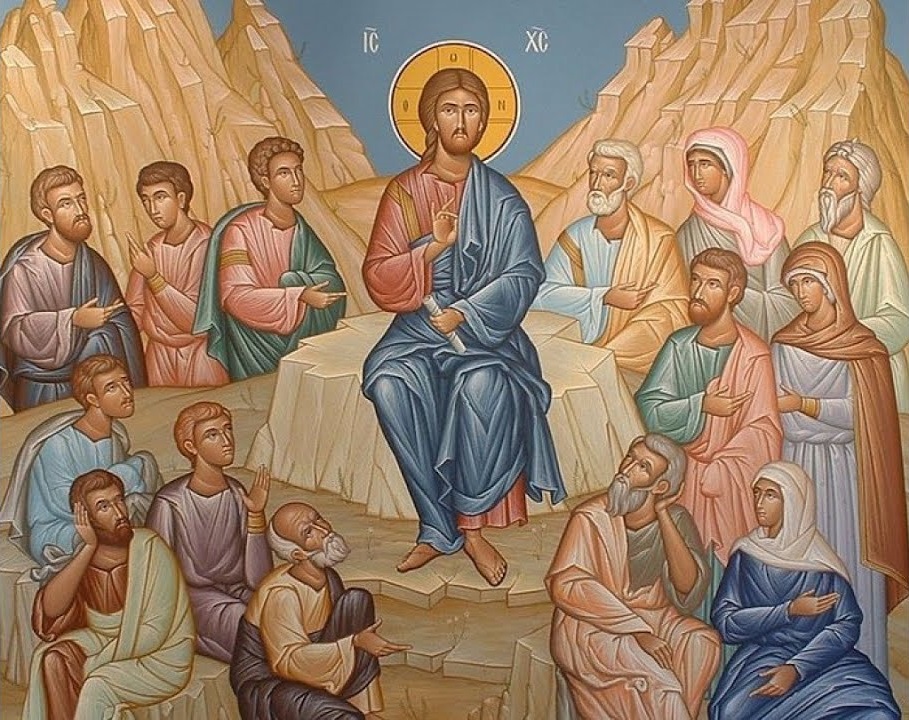In the name of the Father, and of the Son, and of the Holy Spirit, one God, Amen.
“Why does the Lord not do what I pray for?” I ponder to myself: “I am in Church, I pray regularly, I read the Scriptures: why does he not do what I want?” And I lose faith, I murmur against God, I turn away from the Lord.
In the Garden, when God asked Adam, “Who told you that you were naked? Have you eaten from the tree of which I commanded you that you should not eat?” he replied, “The woman whom You gave to be with me, she gave me of the tree, and I ate.” (Genesis 3:11,12) The first instinct of Adam is to pass the blame onto the woman, to place the sin at the feet of another. And the father in today’s Gospel does the same. From the response of the Lord we see that he lacks faith yet, even before Christ says anything, he places the blame on the Disciples, “And I brought him to your disciples, and they could not heal him.”

And in our generation, even adults will have as their default response, “It’s not my fault.” Blame lies elsewhere, we lie to ourselves, “I am not going to take responsibility.” Despite all the Lord has done for us—the Incarnation, the preaching, death on the Cross, the Resurrection, the sending of the Holy Spirit—despite the greater blessings we have received even than Adam, we pass the blame onto another.
“Why does the Lord not do what I pray for?” It is, in part at least, because I do not take responsibility for my sin. “For all have sinned,” the Apostle tells us, “and fall short of the glory of God,” (Romans 3:23) and I must repent, I must turn away from evil and towards the Lord. Yet there is more, this is not the whole story. The Lord heals, and heals often, but the son in today’s Gospel reading would still go on to die. We pray for the sick to be healed, the hungry to be fed, the naked to be clothed—and these are all good things, virtuous things, things for which we will be judged on the Last Day—but that for which I should pray, for my own repentance and salvation, remains apart from me. Yet by the weak faithfulness which I have, only the size of a grain of mustard seed, I have the possibility of turning around the mountain of my heart to face the Lord. And then the greatest miracle has the possibility of occurring, the union of the human heart with the Lord.
“Why does the Lord not do what I pray for?” Because I blame, because I ask for the wrong things, because I have not united myself to the Lord. But when I “seek first the Kingdom of God and His righteousness, and all these things shall be added to [me].” (Matthew 6:33)
My dear brothers and sisters in Christ, seek first God’s Kingdom, through prayer and fasting, that your prayers may be for life and for union with God.
That we may unite ourselves with him, by his saving death and resurrection, and come to true knowledge of God, Father, Son and Holy Spirit, and enter into his Kingdom. Amen.
Brethren, God has exhibited us apostles as last of all, like men sentenced to death; because we have become a spectacle to the world, to angels and to men. We are fools for Christ’s sake, but you are wise in Christ. We are weak, but you are strong. You are held in honor, but we in disrepute. To the present hour we hunger and thirst, we are ill-clad and buffeted and homeless, and we labor, working with our own hands. When reviled, we bless; when persecuted, we endure; when slandered, we try to conciliate; we have become, and are now, as the refuse of the world, the off-scouring of all things. I do not write this to make you ashamed, but to admonish you as my beloved children. For though you have countless guides in Christ, you do not have many fathers. For I became your father in Christ Jesus through the gospel. I urge you, then, be imitators of me.
— First Corinthians 4:9–16
At that time, a man came up to Jesus and kneeling before him said, “Lord, have mercy on my son, for he is an epileptic and he suffers terribly; for often he falls into the fire, and often into the water. And I brought him to your disciples, and they could not heal him.” And Jesus answered, “O faithless and perverse generation, how long am I to be with you? How long am I to bear with you? Bring him here to me.” And Jesus rebuked him, and the demon came out of him, and the boy was cured instantly. Then the disciples came to Jesus privately and said, “Why could we not cast it out?” He said to them, “Because of your little faith. For truly I say to you, if you have faith as a grain of mustard seed, you will say to this mountain, ‘Move hence to yonder place, ‘ and it will move; and nothing will be impossible to you. But this kind never comes out except by prayer and fasting.” As they were gathering in Galilee, Jesus said to them, “The Son of man is to be delivered into the hands of men, and they will kill him, and he will be raised on the third day.”
— Matthew 17:14–23
